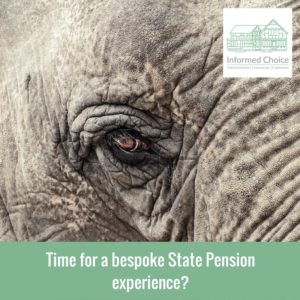 The State Pension age is under an independent review, with John Cridland CBE inviting public and representative bodies to have their say.
The State Pension age is under an independent review, with John Cridland CBE inviting public and representative bodies to have their say.
Last week saw the publication of an interim report on ensuring the State Pension age remains affordable and fair for all in the future, specifically beyond 2028.
Cridland was appointed by the government as the independent reviewer of State Pension age in March and is scheduled to deliver his final recommendations next year.
Publishing his interim report last week, John Cridland said:
“The future of the State Pension age is a hugely important issue for this country. It must be fair and sustainable, and reflect changes in society. My interim report provides an insight into my developing thinking and poses a number of questions.
“Whatever recommendations I decide to make in my final report, they will be underpinned by the importance of effective communications about the State Pension age. People need to be able to plan effectively for their own retirement.
“The review continues to gather evidence to inform its recommendations and the views of the public will form a key part of that data. I want to encourage as many people as possible to respond to the consultation and really hope to stimulate wider discussion.”
Responding to John Cridland’s interim report into the State Pension Age, Richard Parkin Head of Pensions Policy at Fidelity International has highlighted that the issues at stake go beyond simple modifications to the State Pension Age.
He believes that, with such huge variations in people’s requirements, the key concern is ensuring decent standards of living when required, making one simple approach untenable.
Parkin commented:
“The report demonstrates that there are huge variations in people’s needs and experiences however it does raise more questions than it answers.”
According to Fidelity, some of the key issues raised include the affordability of the ‘triple lock’ for State Pension rises each year, the impact of immigration, that average mortality hides a very personal experience, and that universal State Pension provision is a blunt solution to a complex problem.
Richard Parkin said:
“It’s clear the resolution goes beyond pulling the rather crude levers of increasing the State Pension Age (SPA) or reducing benefits.
“We need to work out how we can make sure that people get the value of their lifetime of hard work to enjoy a decent standard of living when they need it.
“There are huge practical issues to this but it feels like a single approach for all is no longer tenable and will become even less so as time goes on.”
Also commenting on the interim report from John Cridland was the TUC, who argued that the State Pension age should not rise any further.
They believe that any further rise to the State Pension age would be unfair and unhelpful to the challenges ahead.
TUC General Secretary Frances O’Grady said:
“More working people rely on the state pension than any other form of retirement saving. We must make sure it remains the bedrock of financial security in retirement.
“The review has made a good start identifying the challenges ahead, and making sure that the needs of carers and the self-employed are not overlooked. It is welcome that the review recognises how important the triple lock has been in helping disadvantaged groups.
“We should do all we can to allow more people to continue working in their later years. But hiking up the retirement age will not help, especially in parts of the UK with lower life expectancy. We should instead remove barriers faced by those who choose to work into later life.”
Could it be the right time for a bespoke State Pension experience, based on personal life expectancy and the number of years spent in work?
Recent years have seen an equalisation of State Pension age for men and women, despite both experiencing very different average life expectancy.
It will be interesting to see how the State Pension age and other elements of the State Pension might evolve in the future based on the outcome of this review when it is published next year.

